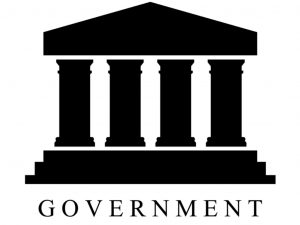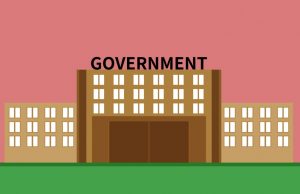Difference Between Federal and State Government: Federalism is a mixed or compound system of government that combines a central or “federal” government with regional administrations (provincial, state, cantonal, territorial, or other sub-unit governments) in a single political system, with powers stated and divided between the two.
In other words, federalism is that system of government that divides the powers and administration of a country into levels, to afford effective governance. Argentina, Australia, Belgium, Brazil, Canada, Germany, India, Malaysia, Mexico, Nepal, Nigeria, Pakistan, Russia, Switzerland, and the United States are examples of countries that have adopted the federalist system.
A clear-cut example of how federalism works is the division of government into the levels of the federal government and the state government.
The term “federal government” comes from the word “federalism,” which denotes that a country’s political system is segmented, and the country is run by two power-holding authorities or a structured type of government as a result. The federal government legislates on matters that affect the entire nation or the entire country.
The state government is established to oversee the operation of the state in which it governs. It regulates local issues or activities that occur or are governed inside the state’s boundaries. The state government is responsible for the welfare of its residents, and it must act in accordance with the powers and authority granted by the nation’s legal authority and constitution. It can also establish applicable interstate commerce rules.

Recommended: Three Arms of Government Explained
The Federal Government
The federal government, which can also be referred to as the national or central government is the level of government that is superior to all other levels of government in a state. It is recognised as the highest level of government and has greater influence on both national and international affairs of the state than other regions of government.
The principles regulating the division of powers are usually spelled out or established in the constitution of the national government, which has authority over the entire national territory of a country, and state governments, which have autonomy within their own areas or territories.

The national government plays an administrative role in matters that are of national (that is, affecting the entire country) and international concern. On the national level, matters such as defending national territory, regulating commerce, collection of taxes, creating and managing currency, raising armies and so on. On the international level, it deals with signing treaties, establishing international relations and other matters of that sort.
Also see: Advantages and Disadvantages of Being a Lawyer
The State Government
A state, provincial, departmental or regional government is a defined geographic area into which the entire country can be divided for political or administrative purposes. A regional government frequently has the inherent right to raise taxes within its territory, and it should be able to spend at least some of the money it generates according to its own policies, as well as choose or elect its own executives and officials.

Political decisions and geographic norms usually define a country’s territory. However, the cultural identity and political perspective of the regions within it may differ greatly, and regional identification may be greater than national identity at times.
Regionalism is a political ideology that emphasizes the importance of local identity, independent regional planning, and administrative flexibility. It encourages the expression of cultural uniqueness and puts the interests of the region ahead of the national interest.
In other words, a region’s regionalist politics are focused on that specific territory, with the goal of directing the national agenda toward local concerns and seeking more autonomy for that region.
Also see: Advantages And Disadvantages Of a Limited Liability Company (LLC)
Some powers of the State
1. The state government has the power to enact legislation for the benefit of its residents.
2. It has the power to control or operate commerce between states.
3. They have the jurisdiction to establish local government authorities, which include municipalities and counties.
4. They have the power to regulate the enterprises and industries that operate in their state.

Recommended: Differences Between Acquittal And Discharge
Differences Between Federal government and State Government
Every nation’s government is constantly in charge of regulating and legislating the country’s operations. Both the federal and state governments have a variety of capabilities, but the fundamental distinction between the two is how those powers are used in their respective territories.
1. The main difference between the federal and state governments is that the federal government has the power to regulate the various states of the country, whereas the state government has the power to regulate within the boundaries of the state in which it governs, which simply means that the state government will serve its citizens.
2. Since the federal government legislates national and foreign matters as well as regulates the functioning of the states, the federal government has more power and responsibility than the state governments. The state government, on the other hand, will solely regulate the concerns and activities of its own state.
Also see: Worst Governed Countries In The World: Top 10 Most Corrupt
3. To make it easier to control legal concerns, the federal government has the right to construct lower courts of law. This power is not in the hands of the states.
4. The central government has the authority to raise and maintain forces or armies for the defense of national territory, but the states have no say. The state’s acts are purely for the benefit of the state’s inhabitants.
5. Foreign commerce or trade is significant since it eventually contributes to the country’s economic prosperity. The federal government is in charge of international trade and oversees the smooth operation of international business. The state, on the other hand, is unable to regulate international trade.
Also see: Ways To Preserve Culture And Tradition
6. Laws have an important role in the functioning of a country. The laws enacted by the federal government apply nationwide and are enforced by all states, but the laws enacted by the state governments apply only to the residents of that state.
In general, federal law and Supreme Court decisions are more authoritative than state laws. When a state law and a federal law clash, the federal law takes precedence. The only exception is in the case of citizen rights. If the state law grants citizens more rights than the federal law, the state law takes precedence within that state.
7. The breadth of legal authority is one clear distinction between the federal and state governments. The federal government has specific authority over making and vetoing legislation, overseeing national defense and foreign affairs, impeaching officials, imposing tariffs, and negotiating treaties. The federal government also has the power to interpret and alter laws, as well as intervene when one state infringes on another’s rights, through the Supreme Court.
The federal government’s responsibilities include enforcing immigration regulations, bankruptcy rules, Social Security laws, discrimination and civil rights laws, patent and copyright laws, and tax fraud and money counterfeiting laws, to name a few.
Recommended: Difference Between Custom and Tradition
Conclusion
The government plays an immensely crucial part in a country’s growth and development. It is critical to have a well-structured governance system in place so that the country’s operations and functions can be regulated effectively. Every country has its own governing system. Both the federal government and state governments are critical to the country’s balanced functioning.
The federal government legislates for the entire country, but state governments’ powers are limited to their own states’ borders; nonetheless, they eventually collaborate for the nation’s growth and development. In a nutshell, we may conclude that both of these governments are governed and operated in accordance with certain authorities and responsibilities assigned to each.

Edeh Samuel Chukwuemeka, ACMC, is a lawyer and a certified mediator/conciliator in Nigeria. He is also a developer with knowledge in various programming languages. Samuel is determined to leverage his skills in technology, SEO, and legal practice to revolutionize the legal profession worldwide by creating web and mobile applications that simplify legal research. Sam is also passionate about educating and providing valuable information to people.
